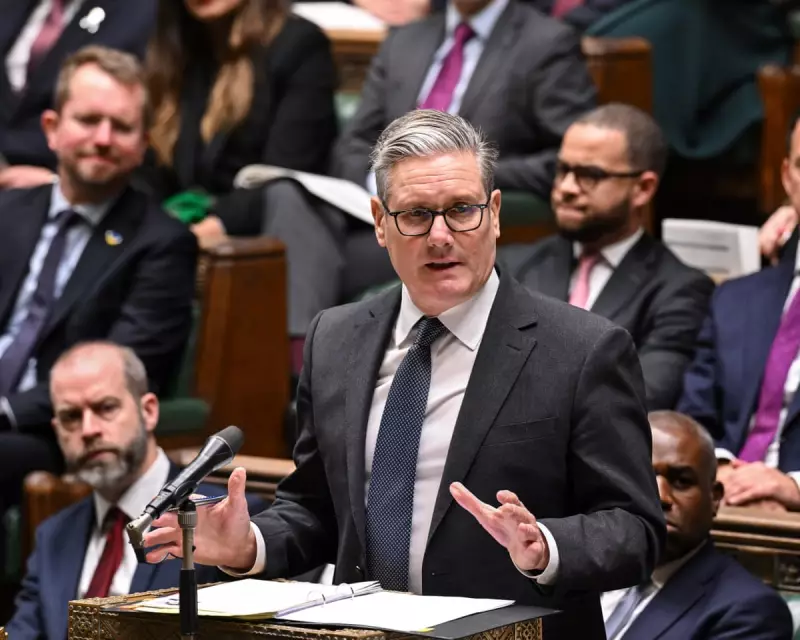
The House of Commons witnessed an unusually subdued Prime Minister's Questions this week, with both government and opposition benches displaying what can only be described as sullen resignation ahead of potentially transformative local elections in May.
A Chamber Devoid of Energy
Normally raucous backbenchers from both parties appeared to have the fight beaten out of them during the exchange between Labour leader Keir Starmer and Conservative leader Kemi Badenoch. The session lacked the customary energy and tribal aggression that typically characterises these weekly showdowns, instead revealing a Parliament ground down by political exhaustion.
MPs seemed to have moved beyond the traditional five stages of grief into a sixth stage of pure resignation. They were present not out of conviction but because parliamentary whips had compelled their attendance, managing only collective guttural groans in response to the proceedings.
Tax Thresholds Take Centre Stage
The substantive debate focused heavily on income tax thresholds, with Badenoch attacking Labour's position on potential stealth taxes. She repeatedly questioned why Starmer's government had floated tax rises only to cancel them after the budget, though notably she struggled to recall the correct date of the budget during her questioning.
Starmer responded with what observers described as a series of non-denials regarding frozen income tax thresholds. The Labour leader appeared relieved that Badenoch's attacks lacked their usual sharpness, laughing at one point when her questioning misfired.
The exchange highlighted the political hypocrisy surrounding tax policy. When the Conservatives froze thresholds for seven years in 2021 - raising £40 billion despite a manifesto pledge not to do so - they presented it as fiscal prudence. Yet when Labour considers similar measures, the government frames it as ultimate betrayal.
Personal Attacks Replace Substantive Debate
The session deteriorated into personal slanging matches, with both leaders essentially accusing the other of being more incompetent. Badenoch labelled Starmer a useless treasury minister and worse opposition leader, while Starmer questioned the Conservative leader's basic competence.
Badenoch referenced her much-discussed golden rule on fiscal policy, though this prompted sniggers from the few MPs still paying attention. The concept appears to be taken seriously only by Badenoch and her shadow chancellor, with most politicians and observers zoning out during these explanations.
Reform UK and Racial Politics
The session concluded with Reform UK's Lee Anderson accusing Labour of dog-whistle politics through their new immigration policies - an ironic criticism given his party's specialization in such tactics. Anderson seemed more annoyed that Starmer was trespassing on Reform's political territory than genuinely concerned about the policies themselves.
Starmer turned the tables by questioning whether Nigel Farage would apologise for racist remarks he allegedly made during his school days. The Labour leader highlighted Farage's recent silence regarding Sarah Pochin's comments about too many black faces, drawing parallels to Badenoch's failure to condemn similar remarks from Robert Jenrick about Birmingham.
As Parliament approaches the May local elections, this PMQs session revealed a political class going through the motions rather than engaging in meaningful debate. With both major parties appearing exhausted and the prospect of significant political changes ahead, Westminster seems to be marking time rather than governing effectively.






